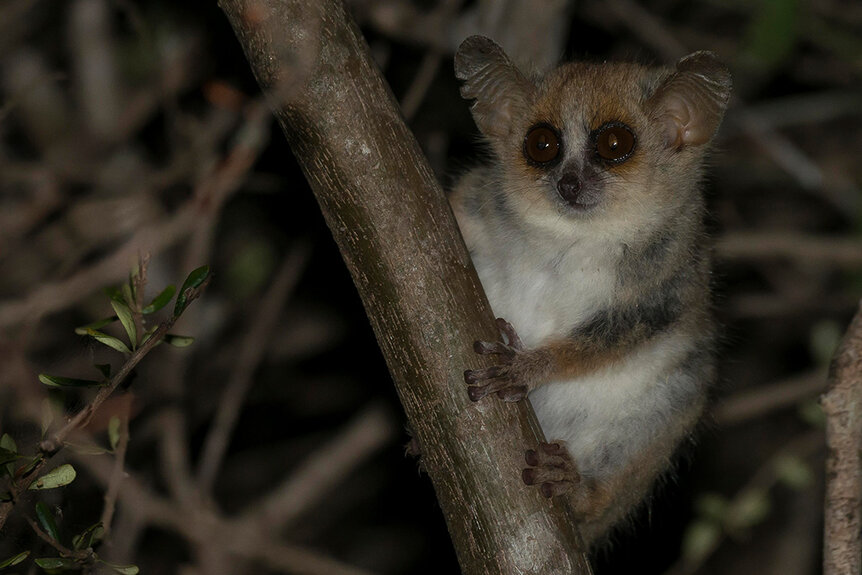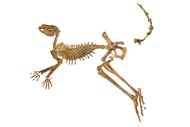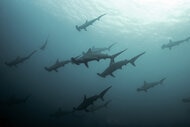Create a free profile to get unlimited access to exclusive videos, sweepstakes, and more!
Survival of the Smartest: Brains More Important Than Brawn, Study Finds
Work smarter, not harder.

Over the last few decades, our media has become increasingly obsessed with the end of the world. Through movies, television, and video games, we’ve experienced and tried to survive apocalypses of every kind. It makes a certain amount of sense if you step back and look at the end times through an evolutionary lens. The apocalypse is scary precisely because we’ve made a comfy little (or not so little) niche for ourselves by separating ourselves as much as possible from the rest of nature. If all of those structures were to suddenly break down, we’d be thrust back into a world in which the only rule is kill or be killed.
Take John Doe (Anthony Mackie) from the upcoming Twisted Metal series (based on the video game series of the same name, premiering July 27 on Peacock). He’s just an ordinary man trying to deliver a package across a vast, deadly wasteland. Along the way, he encounters a diverse cast of violent characters including the nefarious killer clown Sweet Tooth (Samoa Joe and Will Arnett, in physical and voice performances, respectively) while just trying to survive in a world he wasn’t made for. Fortunately, brains go a long way toward survival, even if you aren’t the fastest or the strongest, according to a recent study published in the journal Science Advances.
Brains are better than brawn, but both is best
When Darwin first cooked up his ideas about evolution through natural selection, he spoke largely in terms of survival of the fittest. In short, whichever species or individual within a species is fittest, will be the most successful. Species or individuals who are less fit are either pushed out of the evolutionary race by better adapted competitors, resulting in death or extinction, or they adapt to fit into a new niche, causing speciation.
RELATED: Brains or Beauty? Frogs Choose Intelligence or Camouflage to Evade Predators
Often, we think of being fit as being the strongest, the fastest, or the most attractive. The idea being to capture as many resources as possible, mate and reproduce, and avoid being eaten. But humans aren’t the fastest or the strongest species, yet we’ve managed to put the whole of the planet in a stranglehold, which suggests that being clever goes a long way.
Researchers put that hypothesis to the test, in a population of 198 wild gray mouse lemurs in Madagascar. The study was carried out by the German Primate Center over the course of several years. Scientists put the animals through a battery of tests designed to measure their personality and cognitive abilities.
Cognitive tests looked at behaviors like problem solving, spatial memory, and causal reasoning by having animals access food through the manipulation of sliders or strings. In short, they were testing an individual’s ability to access food from unconventional sources. The personality tests focused on qualities like curiosity and willingness to explore. Once a baseline was established, researchers watched the lemurs for several years, tracking their weight and survival over time.
The results suggest that there is no one path to evolutionary success, but that certain qualities may give you a leg up. Lemurs who performed better on cognitive tests tended to be less exploratory on average. That’s not terribly surprising; if you’re able to manipulate the environment at your fingertips to get what you need, then you don’t have to range as far. However, individuals who were more exploratory tended to have higher weights, probably because they had access to a wider range of resources. A greater tendency for exploration, however, might also raise the probability you end up in a potentially deadly scenario. There are benefits to either strategy.
“These results suggest that being either smart or exhibiting good physical condition and exploratory behavior are likely to be different strategies that can lead to a longer lifespan. In future studies, we aim to investigate how cognitive abilities translate into behavioral strategies to find food or mating partner,” said Claudia Fichtel, first author of the study and a scientist at the German Primate Center, in a statement.
RELATED: You might have some memory of ancient ape sign language
The real trick is combining both features. If you can be exploratory and clever, you suddenly have access to a much wider range of resources and opportunities. In the study, individuals who were both clever and exploratory tended to have longer lifespans than their peers. It’s important to note that humans are not lemurs (obviously), but the results probably tell us something about ourselves as well.
A willingness to explore new environments pushed our ancestors from their birthplace in Africa to practically every mass of land on the planet. And the brains to exploit those new environments allowed us to become the most successful species the world has ever seen, maybe a little too successful.
Which is probably part of the reason we’re so worried about it all crashing down around us. Experience the latest in high-octane apocalyptic adventure in Twisted Metal, premiering July 27 on Peacock!















